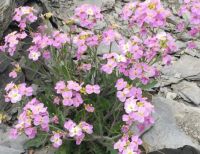Without encouragement and incentives, switching to pesticide-free production is often not economically viable. The price premiums and area-based payments offered by public and private initiatives, however, make conversion financially attractive for many farms. Surveys on Swiss farmers reveal that it’s crucial they are not financially worse off by switching to pesticide-free production. Farmers also tend to perceive pesticide-free production as riskier, which may deter them from adopting new practices.
Gradual expansion
Given targeted support, pesticide-free production systems have potential to be implemented on a large scale and to complement existing cultivation systems. They offer farmers more flexibility when choosing site-appropriate production and can be extended step-by-step to other aspects of the crop rotation. In this way, a viable path between conventional and organic farming will be forged – one that creates added value for the environment and farmers.
However, a number of hurdles lie in the way of expanding pesticide-free production. So far, no standard definition exists as to what counts as pesticide-free production and what not – and this hampers coherent communication.5 In addition, the labelling of pesticide-free production poses logistical challenges, as all the transportation and processing steps must be separated. What’s more, if ultimately a large proportion of the population is to be fed with pesticide-free produce, to what extent can price premiums and area payments be maintained in the long term? And finally, the loss of yield compared to conventional production must be reduced. Researchers must now join forces with farmers and industry to make approaches for replacing pesticides more effective, and to bring down their costs.
Robert Finger wrote this contribution together with external pageNiklas Möhringcall_made, Professor at the University of Bonn.














